Teacher exchange: Georgia meets Sweden
Between the 8th and 11th of November, Nino Abesadze from Georgia visited Emma Lindahl in her school in Sweden as part of a teacher exchange. This is their report about the visit:
The visit in school took place on Thursday and Friday. On Thursday our meeting started by welcoming me to their school and I told them some about Georgia and the school life in Georgia. Then we, teachers and students, went to a study visit at the village's brand new hydrogen gas station. We got a presentation about the history of hydrogen and a bit about what we were to see. Then we went to the nearby windturbine that provides electricity to the process. Right next to the windturbine is also were the hydrogen is beeing produced by electrolysis. We were told how the process works and then went back to were the hydrogen tank station is. We were shown how this works too and asked some last questions.
In the afternoon I had prepared a workshop for students. The students were to build an electrical tester by her instructions. When they were finished Emma had prepared a worksheet for the students to follow in order to conduct a systematic investigation about conductors and isolators.
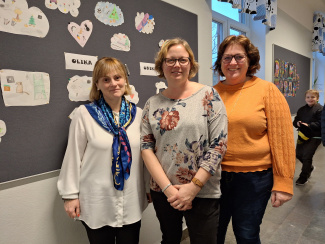
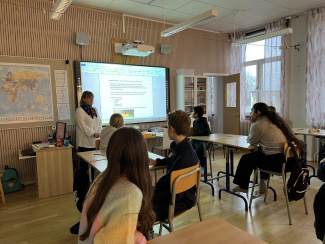
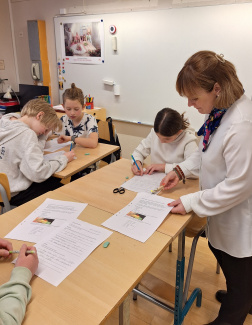
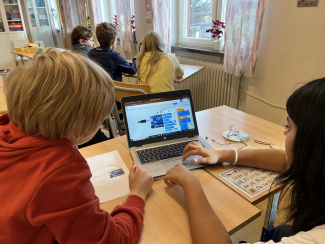
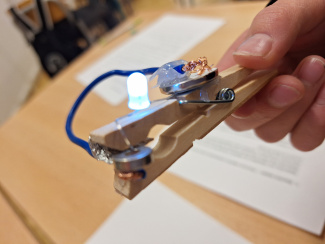
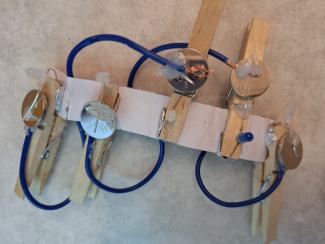
On Friday we had an other workshop. I started by showing three moving constructions that the Swedish students will try to build later on by using drawings from Georgia. Then the students were to connect three LED's to an Arduino board and program the LED's to blink in different ways by using Tinkercard. All this took some thinking about wiring aswell as parallell and serial connections. The students also learned some about resistors and the role they play in electrical appliances.
During November and December the Swedish students will try out the moving constructions and also learn more about a material called Little Bits. When beeing inspired by this they will come up with their own ideas on how to apply electricity to moving objects. This will be an extention of what students were doing in spring 2023 when they built moving constructions that showed how to generate electricity. The Swedish students will then do drawings of their constructions and send to Georgia. They have also been writing an explanation of how the hydrogen gas station work, from windturbine to car.
In spring 2024 Emma is planning to go to Georgia to do workshops with the Georgian students. The content will be more specified when we see the outcome of the work that will be conducted in each country during fall.
Share this page